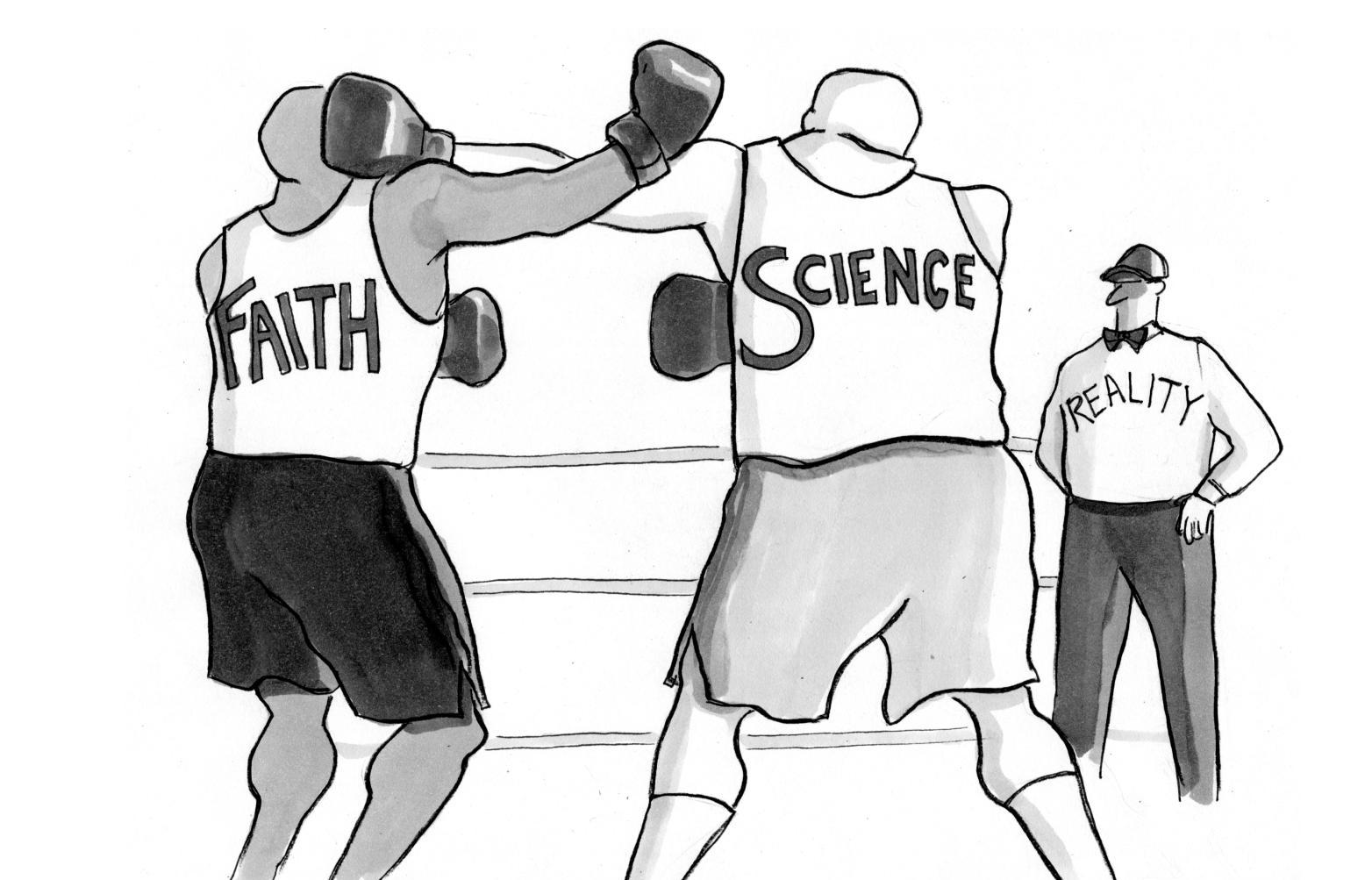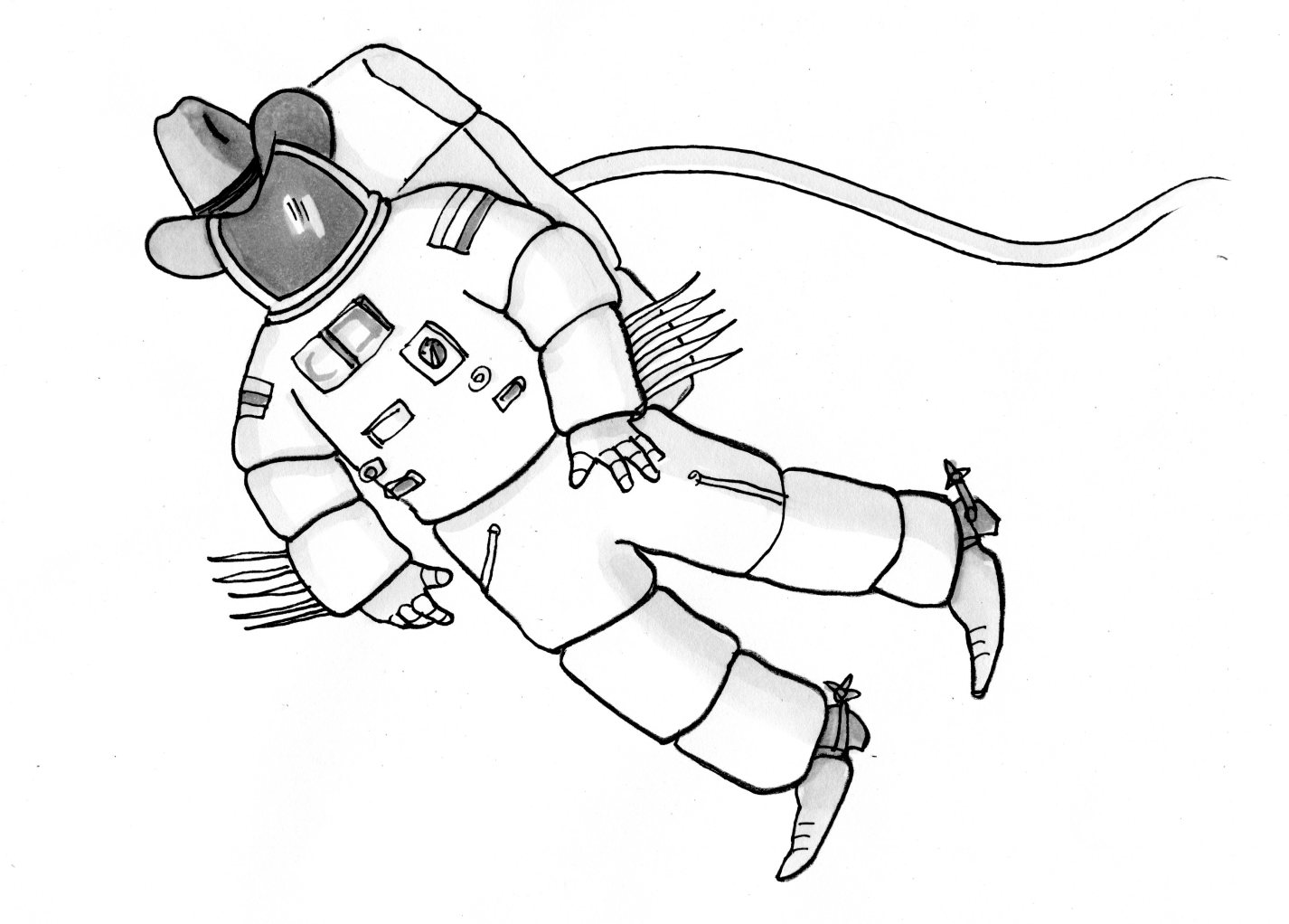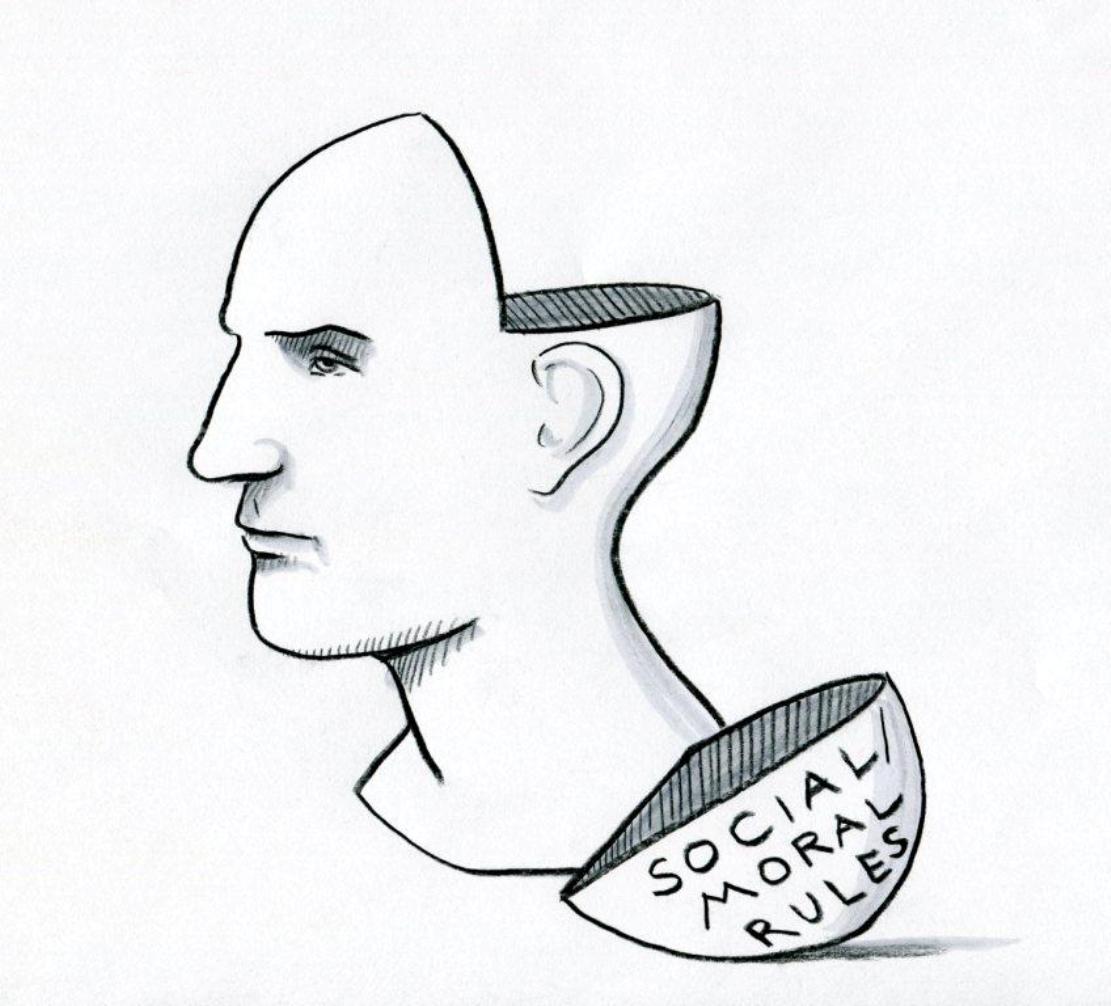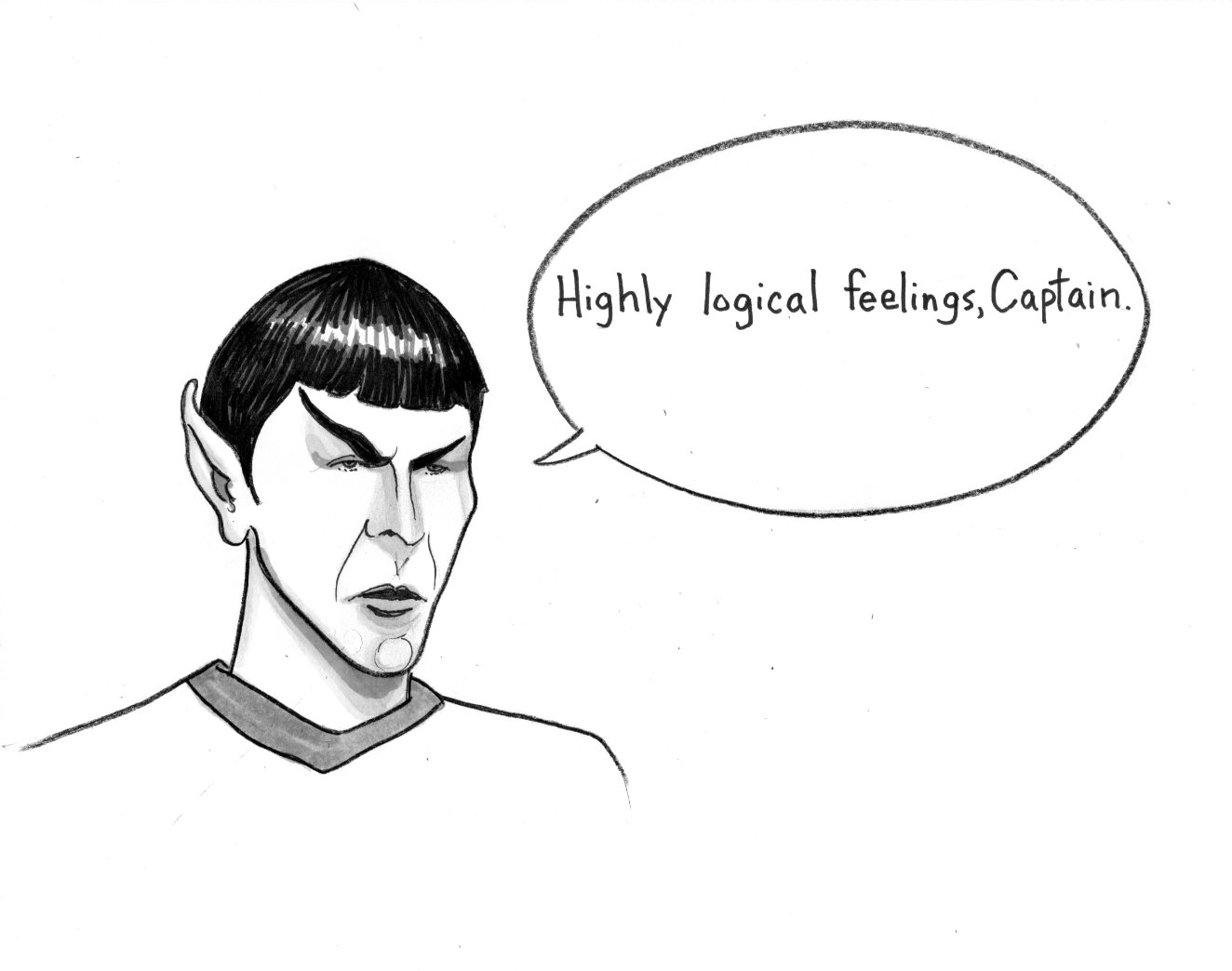Jag Bhalla
Science Writer, Blogger, and Essayist
Jag Bhalla is a writer and entrepreneur. Current projects include this "Thought Fix" blog series for Big Think. And NanoSalad a zero-prep way to zap veggie gaps (by BodZoo LLC, a future-friendly, basic-by-design business, see www.bodzoo.com for further details). Prior projects include "Errors We Live By," a series of short exoteric essays exposing errors in the big ideas running our lives. And I'm Not Hanging Noodles On Your Ears, a surreptitious science gift book from National Geographic Books, which explains his twitter handle @hangingnoodles.
Technomorphic ideas can alter the rules of our thinking about our thinking — and also show that simple rules can escape physics-like predictability.
Biases and flaws are like foreheads — it’s easier to see others’ than your own. So our most cherished beliefs should be tested by rigorous bias-balancing processes.
Many market lovers hate what their love needs to work. An incomplete logic has them in its spell, blinding them to the fact that “invisible hand” cuts both ways.
Hayek viewed markets as distributed-intelligence systems that evolved to compute resource allocations. We can now update that view with ideas from computer science, biological signalling, and evolution.
Can we rely on Adam Smith’s “invisible hand” to lead markets to “the best” overall outcome? Darwin’s insights say no.
A key thought experiment, the “tragedy of the commons,” is widely misunderstood, especially among certain kinds of economists. Elinor Ostrom won a Nobel Prize for showing how irrational they can be.
Our unique capacities were created by a major transition in evolution, which built a need for teamwork and inclusive economics deep into our nature. But many economists — quite unnaturally — exclude its logic from their ideas.
“Teamwork is the signature adaptation of” humanity, says David Sloan Wilson. And our ancestors evolved ruthlessly cooperative means of ensuring productive social coordination.
Division of labor creates a need for others. And it logically connects your interests with the interests of those needed others (which complicates evolutionary trade-offs).
Evolution can be seen as a process of discovering logic that works well in a particular environment. But evolution can’t see what our foresight can grasp. In some cases the logic inherent in relationships of need (e.g. within groups) can be decisive.
Each day, each of us faces 500 billion opportunities for genetic civil war to break out. Thankfully we’ve also evolved good ways to police and suppress these rogue parts, their mutinous mutations, and their declarations of independence.
Many believe that evolution plays only ruthless “red in tooth and claw” games. But that view tends to ignore that nature is teeming with unseen or underappreciated teamwork.
Many don’t have a leg to stand on where their understanding of evolution is concerned. David Sloan Wilson (head of the Evolution Institute) says “natural selection is life Monopoly.” But, it could be more like basketball…
Do “free markets” deliver efficiency as advertised? Economists often use “efficient” differently. Therein hides perhaps the last unlaughed-at Utopian ideas.
Both biology and economics are in the “productivity selection” business. But self-interest in evolution differs greatly from self-interest in economics. Comparing them shows that excessive self-maximization has become a systemic risk.
The word “rational” needs to be rescued. Tom Stoppard’s new play shows that a major rational parable, the Prisoner’s Dilemma, is widely misinterpreted. Seeing why “rationalists” do worse than Christians can help us avoid losing in evolution’s “negative telos” games.
Information Theory explicitly ignores meaning. Its focus on messages makes it uninformative about their effects. And limits the usefulness of its way of quantifying information.
Nature invented software billions of years before we did. “The origin of life is really the origin of software,” says Gregory Chaitin (inventor of mathematical metabiology). Life requires what software does. It is fundamentally algorithmic. And its complexity needs better thinking tools.
Despite popular views, evolution entails inheriting more than genes. And it isn’t all ruthless competition. Nor is it all random mutations. “Niche Construction” adds a third inheritance mechanism to the complicated mix.
Something like social contracts likely run deep in our nature. As does the “economic justice” they need. The largest database we have on hunter-gatherer cultures suggests our ancestors had rigidly egalitarian tendencies 10,000 generations ago.
Is ruthless selfishness natural and rational? The idea that this is just how “selfish genes” and evolution work is unnaturally selective. Without certain kinds of cooperation, no gene can survive (that’s using the term cooperative in a similar metaphoric way that genes can be described as “selfish”).
Reason is larger than science. And much can be logically true without seeking “the numbers.” Too many now forget that mathematics is a subset of logic. Here’s how logic dictates we need the humanities…
Comparing “astronaut” to “cowboy” ethics can show that Locke’s limits on liberty need to be revised. We once could see that pitting self-interest against collective self-preservation wasn’t rational. Me-opic and logically unworkable ideas that economics sometimes encourage have made that harder to see.
Some supposed rationalists would have us believe we are ill-fated idiots. An ancient Greek myth of Prometheus can help us see how to avert this modern tragedy of reason (whereby a sub-natural view of rationality risks making ancient idiots of us).
New word tools can sometimes avoid old confusions. Let’s use “praxotype,” “cognotype,” and “technomorphic” to see human nature more accurately. Especially to see that we’re the least genetically constrained species ever.
Too many top minds have “positive capability” bias. That label usefully contrasts with Keats’ “negative capability,” a poetic idea that applies to many unpoetic experts. It explains why Shakespeare’s psychology is better than much of the modern “scientific” sort.
Star Trek’s logic illustrates weaknesses in pop psychology’s models of emotions, intuition, logic, and morality. The best current cognitive science on this is well described by Daniel Kahneman. Let’s “Kahnemanize” Kirk and Spock:
Moral sciences are back. Natural laws of ethics, envisioned early in the Enlightenment, can now be objectively studied. Game Theory is reteaching scientists and “rationalists” old wisdoms, while suggesting a “Golden Punishment Rule,” and a Naturalistic Fallacy reform (via “negative telos”).
Nature’s games aren’t all “red in tooth and claw” competitions. Evolution also contains cooperation. And Game Theory provides the tools (“behavioral telescopes”) to show how cooperation can improve evolutionary fitness.
Romance and reason are becoming estranged bedfellows (too bad—they were a cute couple). Does love’s logic now add up? Or is love like “happiness,” a low-resolution word (unhelpful in seeing key distinctions). Food for thought on love’s unrequited logic…





























